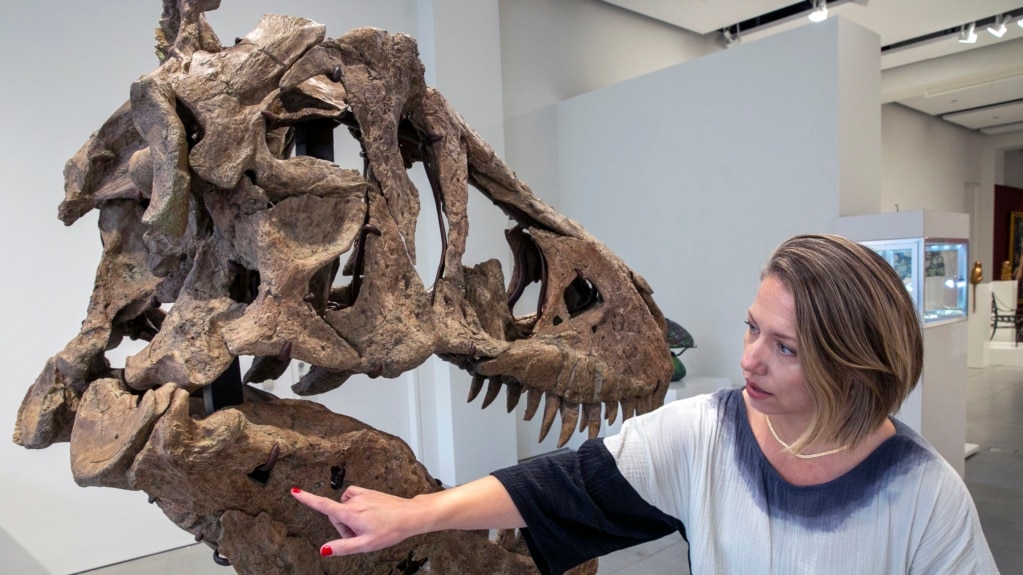A group of scientists has disputed a study published last year that estimated the intelligence of the dinosaur Tyrannosaurus rex to be similar to a baboon’s.
The group disputed last year’s report from Suzana Herculano-Houzel at Vanderbilt University in Tennessee. It said the study did not use studies of reptiles like crocodiles and alligators to explain dinosaur brains.
Zoologist Kai Caspar is with the Heinrich Heine University in Germany. Caspar was the lead author of the new study published in The Anatomical Record.
Speaking of dinosaurs like T. rex, he said “their neuron numbers were likely not exceptional, especially for animals of their body mass.”
But Herculano-Houzel stands by her research.
She said her work studied the “brain to body-size relationship” of modern-day theropod relatives such as ostriches and chickens. The brain size and number of neurons of those animals, she said, support her theory.
A theropod is a group of dinosaurs that includes T. rex.
She said only one issue is being disputed: “What was actually the size of dinosaur brains. Even then, we’re talking about the difference between a T. rex brain being baboon or monkey sized.”
Caspar said his research group also considered modern birds.
“Reptiles are certainly not as dim-witted as is commonly believed,” he said. Speaking of T. rex, he noted: “it was certainly a behaviorally sophisticated animal.”
Caspar said he had additional concerns about Herculano-Houzel’s research. One issue, he said, is that while humans, baboons, other mammals and even birds have brains that fill the space protected by the skull, “this is not the case for reptile species.” He noted the brain of reptiles fills only about 30 to 50 percent of the space.
He also said it is not known how many neurons, or brain cells, were present in dinosaur brains.
“Looking at living animals, we see that neuron counts are actually not a good indicator of intelligence in the first place," Caspar added.
Caspar noted the study from 2023 assumed the brain filled the whole skull, which, he said, “was certainly not the case.”
Scientists have been learning about dinosaurs for about 200 years. But much remains to be discovered.
Thomas Holtz is the co-author of the new study. He studies dinosaurs at the University of Maryland. He said estimating the intelligence of animals that lived over 60 million years ago is difficult.
“It would be nice if we could just estimate one number and unravel the whole complexity of an animal's biology and lifestyle, but nature isn't like that,” Holtz said.
He said T. rex probably had an intelligence level somewhere between that of birds and reptiles.
“Many of our common assumptions don’t really hold up when you…examine what real animals do in the real world,” he said.
I’m Dan Friedell.

